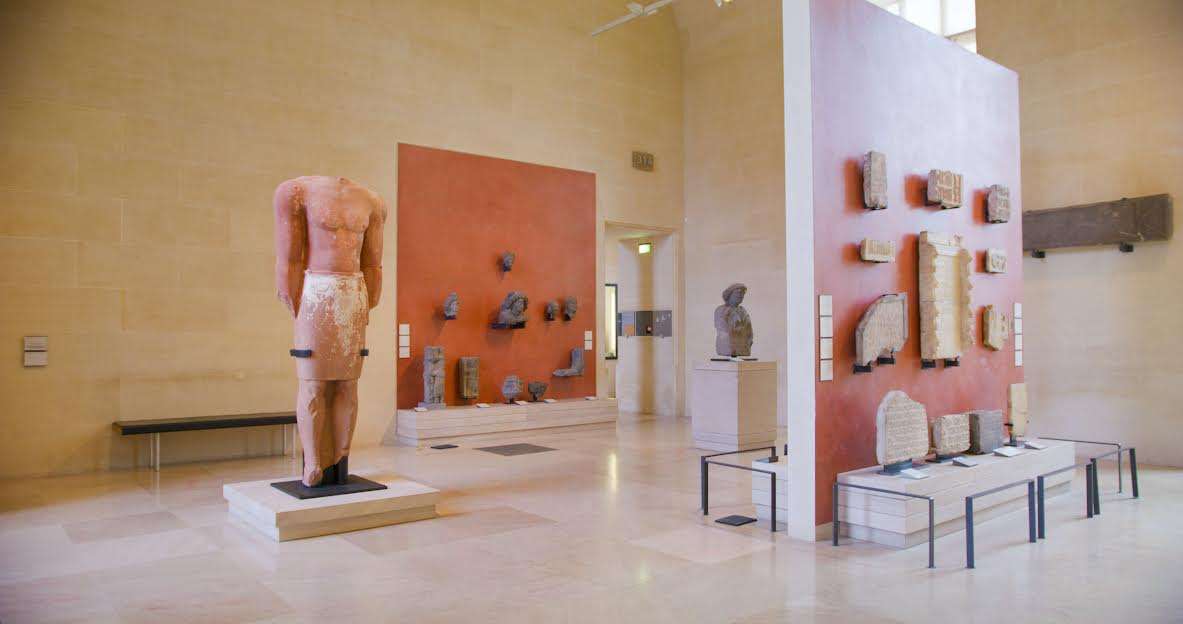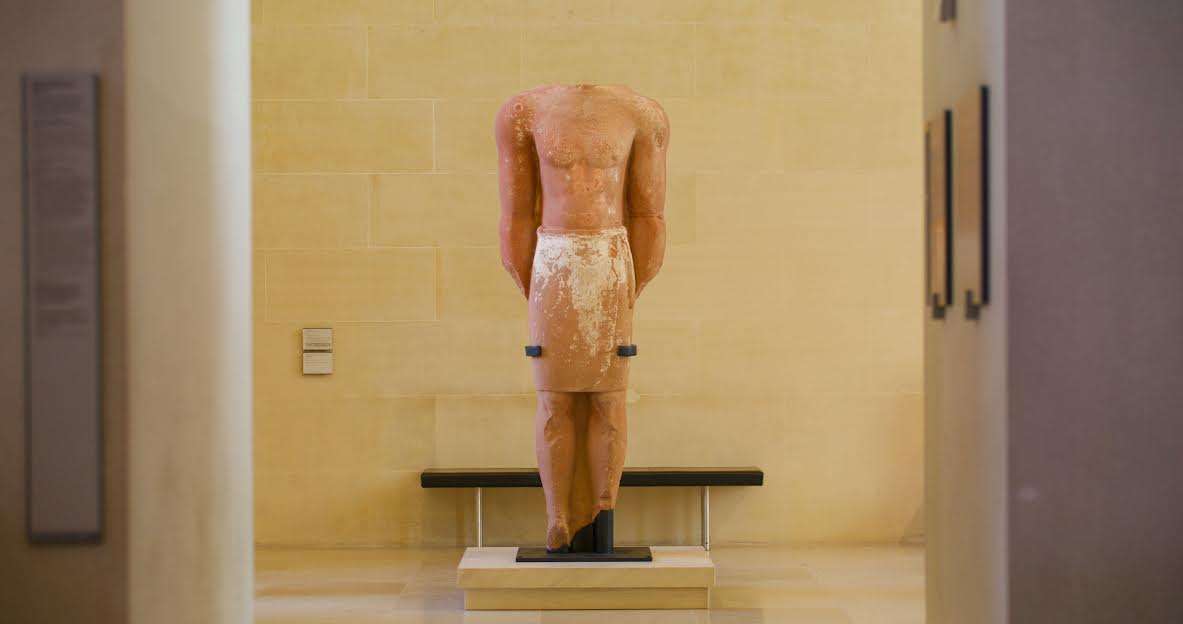A magnificent 2.3-meter-high statue carved from sandstone and presumably depicting an ancient Lihyanite king is on five-year loan from the Royal Commission for AlUla (RCU) to the Louvre Museum.
-
The ‘Monumental Statue’ dates from the 5th – 3rd centuries BCE and was discovered by archaeologists working at the Dadan archaeological site of AlUla in the North-West of Saudi Arabia.
-
The statue gained previous renown when exhibited at the Louvre in 2010 for the Roads of Arabia exhibition.
SAUDI ARABIA/ PARIS (France)
AlUla is located in a fertile valley, at the ancient crossroads of the incense and aromatic caravan routes leading from the south of the Arabian Peninsula to Egypt, Mesopotamia and the shores of the Mediterranean.
Around 2.800 years ago, Dadan was one of the most important trade route stations.
Around the second half of the 1st millennium BCE, it was ruled by the kings of the Lihyan tribe, who retained power for several centuries.
Several colossal statues – believed to depict kings and priests – were discovered between 2005 and 2007 during archaeological excavations of the sanctuary of Dadan led by King Saud University.
AlUla is home to 200,000 years of human history, and an important part of it can now be shared with the Louvre’s international audience through this long-term loan
The ‘Monumental Statue’ on loan at the Louvre shows great craftsmanship. The statue’s smooth surface with intricate details showing the muscles of the torso, abdomen, and the remains of the limbs displays characteristic elements of the Lihyanite school of sculpture.
These features indicate the statue’s distinct local character and reflects the early artistic influence of Ancient Egypt or Greece.
The five-year loan is an important step to close a critical historical gap in the Louvre’s near-east collection, given that the Arabian Peninsula is under-represented in most of the Museum.
This display highlights the archaeological discoveries and preservation work carried out at AlUla by RCU.
AlUla is home to 200,000 years of human history, and an important part of it can now be shared with the Louvre’s international audience through this long-term loan.
The statue was restored in France in 2010 in the context of the Roads of Arabia through a selection of 300 works, most of which had never been seen before outside their country of origin, “Archaeology and History of the Kingdom of Saudi Arabia” exhibition artifacts were presented at the Louvre at the time. Visitors were offered, during this exhibition an unprecedented glimpse into the various cultures that inhabited the territory of the Kingdom of Saudi Arabia from prehistoric times to the dawn of the modern era.
Since its establishment in 2017, RCU has overseen a wide range of archaeological projects, with finds of great importance to regional and global history made by an international team of experts. This exhibition is the beginning of great collaborations between the RCU and the main French institutions of heritage, research, and education of the future.

Royal Commission for AlUla
The Royal Commission for AlUla (RCU) was established by royal decree in July 2017 to preserve and develop AlUla, a region of outstanding natural and cultural significance in north-west Saudi Arabia. RCU’s long-term plan outlines a responsible, sustainable, and sensitive approach to urban and economic development, that preserves the area’s natural and historic heritage, while establishing AlUla as a desirable location to live, work, and visit. This encompasses a broad range of initiatives across archaeology, tourism, culture, education, and the arts, reflecting a commitment to meeting the economic diversification, local community empowerment, and heritage preservation priorities of the Kingdom of Saudi Arabia’s Vision 2030 programme.
*********************************************************************
Readers
These are extraordinary times. All of us have to rely on high-impact, trustworthy journalism. And this is especially true of the Indian Diaspora. Members of the Indian community overseas cannot be fed with inaccurate news.
Pravasi Samwad is a venture that has no shareholders. It is the result of an impassioned initiative of a handful of Indian journalists spread around the world. We have taken the small step forward with the pledge to provide news with accuracy, free from political and commercial influence. Our aim is to keep you, our readers, informed about developments at ‘home’ and across the world that affect you.
Please help us to keep our journalism independent and free.
In these difficult times, to run a news website requires finances. While every contribution, big or small, will makes a difference, we request our readers to put us in touch with advertisers worldwide. It will be a great help.
For more information: pravasisamwad00@gmail.com










